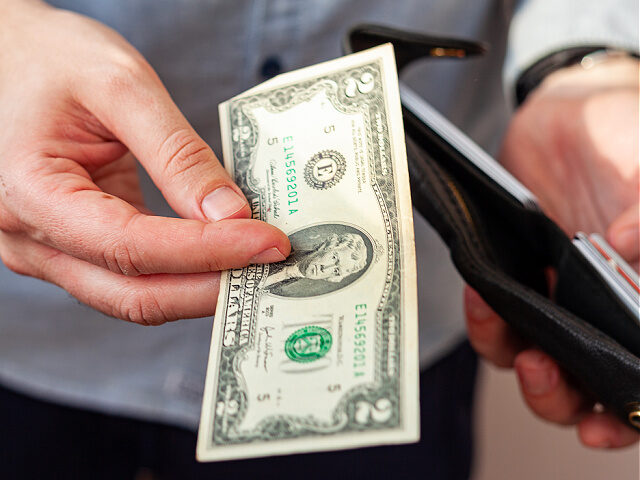Some $2 bills might be pretty valuable, and collectors would love to get their hands on them, NJ.com reported on Monday.
The outlet cited the U.S. Currency Auctions website that shows some collectors are willing to fork over thousands of dollars for the bills.
“If you have a $2 bill with a red seal that was printed in 1890 and uncirculated, it is now worth $4,500,” the report said, adding, “Other $2 bills with a red seal can fetch between $300 and $2,500, while ones with brown or blue seals can fetch hundreds of dollars.”
According to the Bureau of Engraving and Printing, the federal government issued the first $2 bills in 1862 with the first Secretary of the Treasury Alexander Hamilton’s face printed on them:
The first use of Thomas Jefferson’s portrait on $2 notes was on Series 1869 United States Notes. The same portrait has been used for all series of $2 United States Notes as well as for all $2 Federal Reserve notes.
…
In celebration of the United States’ bicentennial, a $2 Federal Reserve note, Series 1976, was introduced. The new design maintained the portrait of Jefferson on the face but the back was changed from Monticello to a vignette of the signing of the Declaration of Independence. The most recent printing of the $2 note has the Series 2017A designation. There are no plans to redesign the $2 note.
The NJ.com report noted the $2 bill is considered uncommon, and officials with the Federal Reserve estimate “that as of 2020, there were 1.4 billion $2 bills in circulation worth $2.7 billion.”
The Spruce Crafts offers advice to beginning collectors looking to acquire $2 bills. Its first recommendation is to find modern small-size notes:
Obtain a current issue $2 note issued between 1976 and today. These include the series 1976, 1995, 2003, 2003A, 2009, and 2013. Collecting one note from each of these series can be achieved on even a modest budget. However, these modern issues are usually not found in circulation. Stores and other retailers typically deposit them in the bank and do not request additional $2 notes.Therefore, you will probably have to purchase them from a coin dealer or at a local coin and currency show.
In October 2013, a currency collector had in his possession an extremely valuable piece of currency, NPR reported.
“His $10 bill — a 1933 silver certificate — is one of a small batch the government released, then tried to remove from circulation. His bill also has a rare serial number, making it worth an estimated $500,000,” the outlet said.

COMMENTS
Please let us know if you're having issues with commenting.